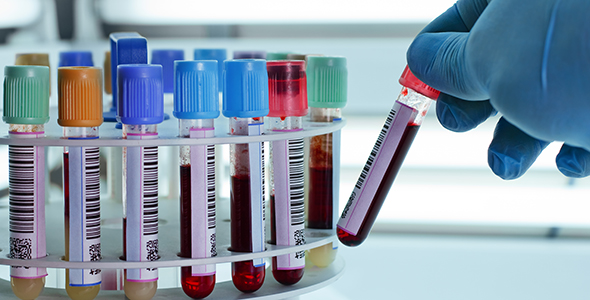By the bioMérieux Connection Editors
Interviewing: Christian M. Shaw, PharmD., BCPS, Clinical Coordinator for the Pharmacy Department at Wilson Medical Center, A Duke LifePoint Hospital
Historically, awareness of antimicrobial resistance has been lower than for other health threats, such as cancer or heart disease. However, the threat that antimicrobial resistance poses to human health is enormous—worldwide, by 2050, 10 million people could die from resistant infections each year. Antimicrobial stewardship efforts at hospitals and health systems are one critical component for combatting antimicrobial resistance. We sat down with Dr. Christian M. Shaw, the Clinical Coordinator for the Pharmacy Department at Wilson Medical Center, to discuss the NCDHHS STAR (North Carolina Department of Health and Human Services Stewardship of Antimicrobial Resources) Partners Initiative, antimicrobial stewardship, and diagnostics.
Can you tell us about Wilson Medical Center’s involvement in the NCDHHS STAR Partners Initiative?
We were one of the initial hospitals that joined the STAR partners initiative when it first launched in 2018. This was a tremendous undertaking involving the departments of pharmacy, infection control, microbiology, clinical informatics, quality/patient safety, The Pharmacy & Therapeutics and Medical Executive Committees, as well as a strong commitment from hospital administration.
Why did Wilson Medical Center feel it was important to get involved with this initiative?
Combating antibiotic resistance is important to us and this is a publicly visible way to show that to our patients and staff alike. We take a lot of pride in our stewardship work and it was important for this to be recognized.
Wilson Medical Center has achieved “Champion” level within the STAR Partners Initiative. What does that status mean, and what was required to achieve it?
One of the key distinguishing factors between Champion and the other STAR Partners recognition levels is reporting our antibiotic use data into the CDC NHSN (National Healthcare Safety Network) portal, with a focus on antimicrobial resistance. We publish our antibiogram annually and present it in a format that highlights antimicrobial resistance. For example, we specifically state what our pseudomonas resistance rate is. Also, with our partners at DASON (Duke Antimicrobial Stewardship Outreach Network), we have been able generate risk-adjusted reports on antibiotic use. We use this data to educate providers on our local antibiotic resistance patterns. The data is also used to help guide our empiric treatment guidelines.
How has the STAR Partners Initiative helped Wilson Medical to implement and/or further promote antimicrobial stewardship?
By achieving “Champion” level within the STAR partners initiate, we have been invited to more venues to discuss stewardship and collaborate on different approaches to appropriate antimicrobial use. The partnership has also created more general interest from various groups throughout the hospital. With the increased interest I have been able to show groups such as infection control or the harms team that their stewardship efforts are making a difference in hospital acquired infections. A key example is from 2018 to 2019 we had a greater than 75% decrease in hospital acquired clostridium difficile infections.
How do you feel diagnostics plays a role in antimicrobial resistance?
Access to reliable, rapid diagnostics is essential to being able to combat antibiotic resistance. Without being able to assure a provider whether or not a more narrow-spectrum antibiotic will work in an individual patient, we would never be able to drive therapy to more narrow spectrum drugs and preserve broad-spectrum agents for patients with true resistant infections. Diagnostic certainty drives our ability to use antibiotics wisely.
Do you think the value of diagnostics and the role it plays in treatment, beyond the current pandemic, is understood among individuals, professionals, and policymakers? What work needs to be done to sustain the investment in diagnostics for appropriate administration of antibiotics?
No, I do not think it is fully understood. In stewardship, we use diagnostics not only on an individual patient, but we look at trends in aggregate to make broader decisions about our patient populations, such as which antibiotics to give in order to prevent surgical site infections and as empiric treatment for common infections. This needs to be included in any policy discussion about antimicrobial resistance right alongside development of new drugs.
What has COVID-19 taught you and your team at Wilson Medical Center about antimicrobial resistance, surveillance, and/or stewardship?
The pandemic has shown us that when stretched thin without extra time for stewardship, we lose ground on important initiatives. Also, early in this pandemic, clinicians treated cases like previous influenza pandemics where secondary bacterial infections were common. That is not the case with COVID-19, yet we still struggle with extensive broad-spectrum antibiotic use. We need to find better ways to build confidence around reserving antibiotics when not needed. That is another example of how diagnostics are such an important part of stewardship—the pandemic has really highlighted this.
About Christian M. Shaw, PharmD., BCPS, Clinical Coordinator for the Pharmacy Department at Wilson Medical Center, A Duke LifePoint Hospital:
Dr. Shaw graduated with a BS in Pharmacy from Massachusetts College of Pharmacy and a PharmD from University of Florida. He completed his pharmacy residency training at the University of Rochester Medical Center and remained on staff in Rochester until relocating to North Carolina in 2005. In his role at Wilson Medical Center, Dr. Shaw’s daily activities include overseeing all clinical initiatives at the facility, performing stewardship activities including active consultation with the ID physician. He is also responsible for building and implementing medication-related order sets for the hospital’s EHR. Through collaborations with the Duke Center for Antimicrobial Stewardship and Infection Prevention, Dr. Shaw has been actively involved in numerous multi-center studies funded by the CDC and other agencies. This includes the recently completed Feasibility Assessment of Stewardship Interventions in Community Hospitals. Additionally, he serves as a preceptor for High Point University, University of North Carolina Chapel Hill, Campbell University, and Husson University schools of pharmacy. Dr. Shaw enjoys sharing his passion for the important role of the hospital pharmacist with future members of the profession.
Opinions expressed in this article are not necessarily those of bioMérieux, Inc.



